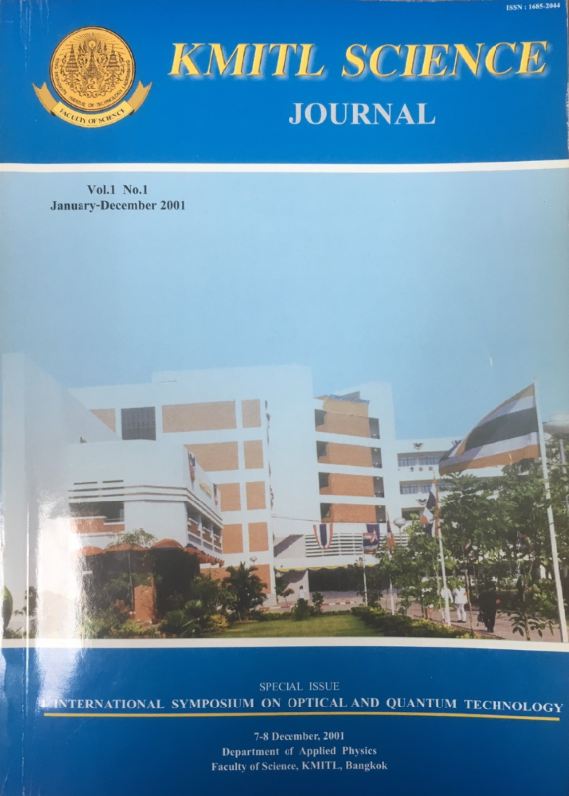Experimental Quantum Cryptography based on the BB84 Protocol
Main Article Content
Abstract
Quantum cryptography is a new technique that provides verifiable secure key exchange between the sender and the receiver. The security of the quantum cryptographic system is protected by the laws of quantum physics, which ensure that any eavesdropping can always be detected. This is in strong contrast with classical key exchange, where the security depends on (unprovable) assumptions. Recent experimental implementation of quantum cryptography achieved about 50 km point-to-point key exchange over optical fibers and about 1 km over a free space connection in daylight. Here we report the development of experimental free space quantum cryptographic systems based on the BB84 protocol. Our system does not use any active manipulation elements, resulting in compactness, reliability and easy handling.
Keywords: quantum cryptography, quantum information
Corresponding author: E-mail: cast@kmitl.ac.th
Article Details
Copyright Transfer Statement
The copyright of this article is transferred to Current Applied Science and Technology journal with effect if and when the article is accepted for publication. The copyright transfer covers the exclusive right to reproduce and distribute the article, including reprints, translations, photographic reproductions, electronic form (offline, online) or any other reproductions of similar nature.
The author warrants that this contribution is original and that he/she has full power to make this grant. The author signs for and accepts responsibility for releasing this material on behalf of any and all co-authors.
Here is the link for download: Copyright transfer form.pdf
References
[2] Charles H. Bennett and Gilles Brassard. An update on quantum cryptography. In G.R. Blakley and D.C. Chaum, editors, CRYPT084, pp. 475-480. Springer, 1985. Lecture Notes in Computer Science No.196.
[3] Gilles Brassard, Charles H. Bennett and Arthur K. Eckert. Quantum cryptography. Scientific American, pp. 26-33, October 1992.
[4] Richard J. Hughes et al., Secure communications using quantum cryptography, SPIE Proceedings 3076, 2(1997).


